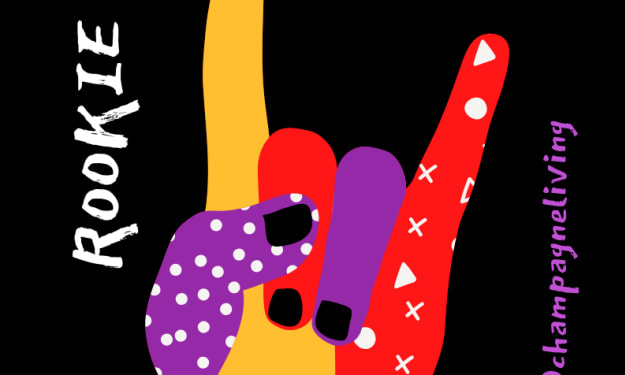There are only two words to communicate with adolescent children.
I asked her, "what were you like in the second year of junior high school?" She said bluntly, "I forgot."

My first reaction, isn't this a typical phenomenon in the second year of junior high school? After I talked to her about the emotional and behavioral characteristics that are easy to appear in the second year of junior high school, she called out, "Yes, that's it."
I laughed at her: "I'm afraid it's not a happy time."
She thought for a moment and said, "that's true."
As a person who has experienced adolescence, I would particularly like to say that the second year of junior high school coincides with the sensitive period of youth at the age of 13 or 14. If there is no correct way to relieve the pressure of growth, study, family and peer pressure, it is indeed a period prone to physical and mental problems.
Moreover, the problems of this period hide the future trend of life.
As the writer Liu Qing said: although the road of life is long, but there are often only a few steps, especially when people are young. No one's life path is straight and there are no forks. Some fork in the road, you take a wrong step, can affect a period of life, can also affect the whole life.
I remember that at that time, many of my classmates dropped out of school in the second year of junior high school or unintentionally stayed up until the third year of junior high school. At that time, most parents did not care about their children, so they decided to do everything by themselves and bear all the consequences.
According to my mother, probably from the second year of junior high school, I often have headaches and the hospital can't find any problems. I wanted to drop out of school for a time, but my mother forbade it.
Until later, when I came into contact with psychology, I knew the word "somatization of psychological problems", which could roughly explain the situation at that time-in the eyes of teachers and classmates, I was still a top student and could not and dare not show rebellious behavior. physical and psychological sprouting self-awareness, headaches become a sign of stress.
Today's children are very lucky, and most parents take on their own responsibilities. They are not only concerned about their children's physical health and learning, but also their mental health.
Parents who can think of taking their children to see a psychiatrist are at least relatively open-minded.
Baidu encyclopedia said:
"the phenomenon of the second year of junior high school" refers to a series of phenomena that occur when the students in the second year of junior high school are in their adolescence. With the rapid development of body and mind, there are various possibilities of development. American psychologist Hollingworth calls it "psychological weaning period".
The students in the second year of junior high school have the characteristics of rebellion, blindness, easy to be influenced by the outside world, emotional agitation, irritability, widespread polarization of grades, frequent violations of discipline, psychological obstacles, plasticity, initiative, pursuit of independence and so on.
Therefore, the second year of junior high school is not only a dangerous period for children's development, but also a critical period for education.
Today, school education still pays more attention to knowledge infusion, which is determined by the system of examination-oriented education.
For both teachers and parents, the focus is still on the child's grades, and it is difficult to treat the child as an independent individual with flesh and soul. For children in their infancy, "who I am" may be more important than "how much score I got in the exam".
Parents of adolescent children often say that their children are unwilling to speak, rebellious and difficult to communicate, and they don't know which sentence will make their children explode.
The parent-child relationship is not harmonious, the communication is not smooth, and life is difficult for both parents and children.
The so-called communication among our Chinese parents often goes like this:
O it's getting cold, remember to wear long johns.
O now that you are in the second year of junior high school, you must study hard and stop having fun.
O if you play the game again, I'll confiscate my phone, you hear me?
O look at your uncle's son next door. He was first in the class at the end of last semester.
O can't you straighten your back when you walk? Always bending over
O the teacher said that you have made a lot of progress in math this semester. Mom and Dad work so hard, it's all for you. If you don't study hard, who are you worthy of?
Sometimes, while the parents said, they were half angry, and the children didn't listen to a word at all. Is this communication?
The key to communicating with adolescent children is just two words-shut up.
Someone raised the argument, and I became mute when I shut up. How can I communicate?
Well, for adolescent children, it is a great blessing that their parents become mute for the time being.
At least the ears are clean, there is time and space for self-integration, and there is no need to be invaded by all kinds of care, advice, greetings, accusations and nagging.
The premise of effective communication is to listen honestly and uncritically.
Perhaps the worst thing we are good at is listening uncritically, and sometimes honesty is not so easy. Probably best at criticizing and preaching.
For example, the child came home to tell you that I didn't like the new math teacher, so I didn't do well in the math exam this time.
The critical and didactic answers are as follows: what does it have to do with your math teacher if you didn't do well in math? It's because you don't work hard and make excuses! Or, even if you don't like your math teacher, you should study math well, which is a very important subject in the high school entrance examination. The child automatically opens the defense barrier, muttering to himself, here we go again, forever. In the future, I won't tell him anything. )
Frank and uncritical listening goes like this: your favorite Mr. Li doesn't take the math in your class? (um) you don't like the current math teacher (well, none of my classmates like him). I didn't do well in the math exam this time. What are you going to do next? The child found that his parents understood what he meant and did not blame himself for not doing well in the math exam this time. He believed that he would find a way to learn math well even if he didn't like his current math teacher. )
Parents shut up their attempts to preach and criticize and keep the communication open and effective. ?
Thomas Gordon, a famous American psychologist, said that "saying nothing" (shut up) can also clearly express the sense of acceptance.
Keeping silent-"passive listening"-is a very effective non-verbal message that makes the other person feel truly accepted.
He used the following conversation between the parent and his junior high school daughter who just came home from school to illustrate how wise and effective it is to communicate with teenagers and shut up sometimes.
Child: I was called to the vice principal's office today.
Parent: Oh?
Child: that's right. Miss Li said I talked too much in class.
Parent: I see.
Child: I can't stand Mr. Li. He's boring and annoying. He sat there, either talking eloquently about his troubles, or his grandchildren, expecting us to be interested.
Parent: mm-hmm.
Child: I joked with my deskmate while he was talking. He asked me to stand at the back of the classroom, but if I didn't go, he told me to go to the vice principal's office. Oh, he's the worst teacher you can imagine.
Parents: (silent)
Child: if I had a good teacher, I would do very well, but if a teacher like Mr. Li taught me, I wouldn't want to learn anything. I don't understand. How can such a person be a teacher?
Parents: (silent)
Child: I think I'd better get used to this fact, b






Comments
There are no comments for this story
Be the first to respond and start the conversation.